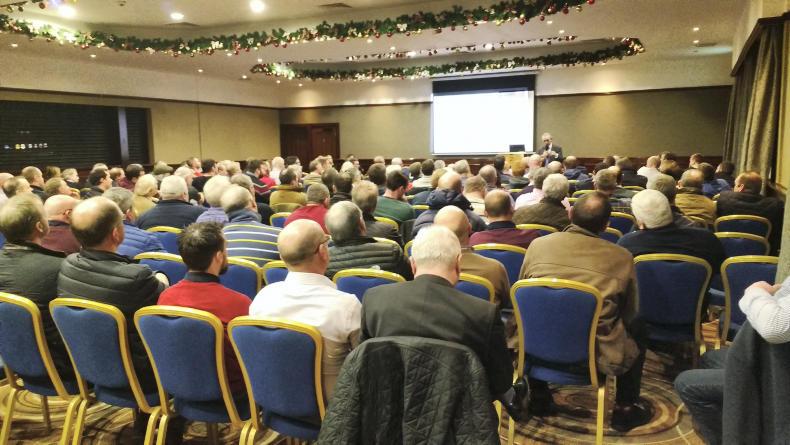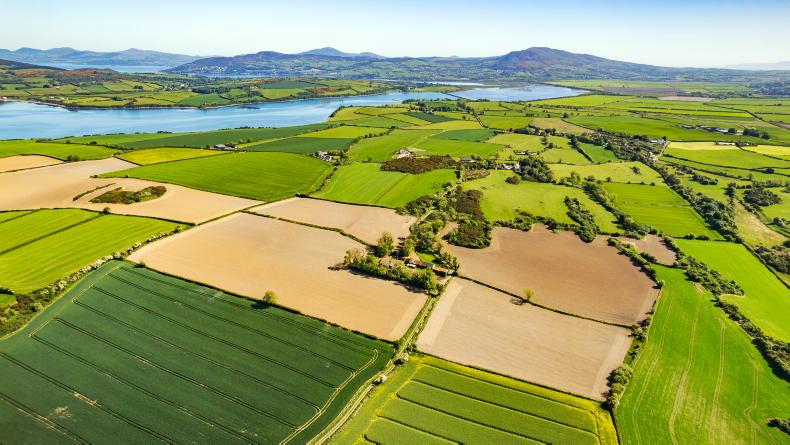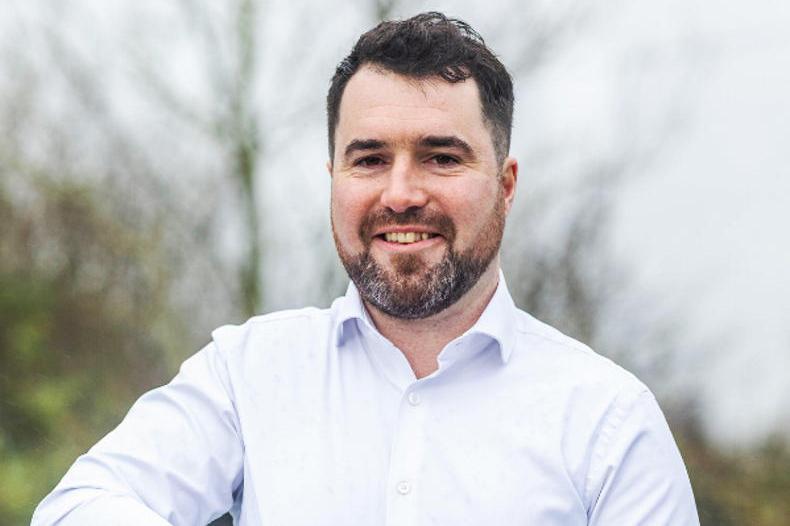Despite losing a judicial review case in the High Court in December 2017, members of the Renewable Heat Association of NI (RHANI) gave a resounding mandate to directors at the organisation’s AGM last week, to continue a legal battle with the Department for the Economy (DfE).
A motion backing RHANI directors in “whatever robust legal action they need to take” was given unanimous support from the floor.
The legal battle started when DfE amended regulations to the controversial renewable heat incentive (RHI), moving all claimants onto tiered and capped payments from 1 April 2017.
Those payments were first introduced for new claimants on 18 November 2015.
Prior to that the original 2012 regulations paid a set tariff for a minimum of 20 years on unlimited heat.
The 2015 changes introduced an upper limit of 1,314 hours to be paid at a higher tariff, and an annual usage limit of 400,000 kWh, beyond which no subsidy is paid.
DfE argued that without the changes, over the duration of the scheme the cost to the NI block grant could be as high as £700m (a figure RHANI believes is grossly inflated). However, for those legitimate claimants who invested significantly in biomass boilers and hot water heating systems pre-November 2015, the new tariffs enforced from 1 April 2017 represented a major financial hit.
On 4 October 2017 RHANI challenged the lawfulness of the 2017 regulations by way of a judicial review in the High Court.
In particular, the association took note of a similar case in 2011 involving Friends of the Earth, who opposed government cuts to a solar energy scheme in Britain.
The changes to those tariffs were expected in April 2012, but brought in before the end of 2011. The campaign group won the case.
However, in the action taken by RHANI, the judge, Mr Justice Colton, ruled against RHI claimants, referring to “compelling public interest” in applying the cuts to RHI tariffs.
That decision, taken in December 2017, represented a major setback for RHANI, but it was not the only concern facing the organisation at the time, with its own legal bill over £200,000, and the prospect of also having to cover DfE legal costs.
Despite the potential for insolvency, RHANI directors appealed the judicial review ruling – the appeal is due to be heard next month (20 February).
In the intervening period, RHANI had taken a case under the Aarhus Convention, an EU provision which protects those who want to challenge government on environment-related issues.
Last March a settlement was reached with DfE. It effectively limits exposure to opposing legal costs to a maximum of £15,000 per case.
“It is a favourable outcome for RHANI, but we were taken to the wire on it. Without that protection you are at the mercy of the court. You can now plan for the worse-case outcome,” explained Barrister Richard Shields at the RHANI AGM last week.
He maintained that all the preparatory work has been done for the appeal, which is not expected to involve a lot of time in court as it will solely focus on the decisions made by the judge in the initial judicial review.
However, the actual judgement could still take a matter of months.
“It is still all to play for in our opinion. There is still mileage in this case,” said Shields.
If RHANI was to win, it potentially means that RHI claimants would be entitled to the money they didn’t receive because payments were tiered and capped in 2017.
But, irrespective of who wins the appeal, it is possible that the losing party takes it to the next level (the supreme court) for a final judgement, so the battle could drag on.
“The law is a marathon,” said Shields.
He also made it clear that the appeal applies only to the 2017 regulations, which cover the period 1 April 2017 to 31 March 2018.
In March 2018 DfE introduced 2018 regulations (which apply for another 12-month period) through an Act of Parliament at Westminster.
As of last week, RHANI was yet to challenge those regulations, but the advice of Shields is that this should be done before the appeal is heard next month.
The 2019 regulations
That then takes us to the 2019 regulations, and brings into play a public consultation undertaken by DfE in the summer of 2018, which outlined eight different options for a long-term tariff structure for RHI claimants accredited before 18 November 2015.
Those options included everything from stopping payments to reverting back to the 2012 tariff structure.
DfE is expected to publish its plans in the coming weeks, and has indicated that it hopes to take the legislation through Westminster.
However, at the AGM last week RHANI directors questioned whether, given Brexit, there will be enough parliamentary time available at Westminster to allow new long-term regulations to be brought in before the end of March.
The fear among members is that DfE could then simply move to close the scheme down for pre-November 2015 claimants.
“We will have to cross that bridge when we come to it,” said Micaela Diver, a solicitor who has been working on the RHANI case.
Concerns over the audit process
Part of the service offered by RHANI to members is to help them with ongoing audits of the scheme, with the group planning a compliance workshop in the weeks ahead.
“If people fail at audit, there is a reputational risk to RHANI.
There is a danger that the department uses those audit statistics against us,” said RHANI executive chair, Andrew Trimble.
At present it is understood that around five RHI sites are inspected each week, out of a total of 1,270 sites across NI.
Around 10% of RHANI members at the AGM last week indicated that they had been subjected to an audit.
However, there was a lot of unease about the audit process, with many believing that some of the questions asked are unreasonable and that the process is being used as a tool to cut RHI numbers. Some members also indicated that it could be three to six months before they are made aware of the outcome of the audit process
RHANI to cut membership fees
With RHANI not exposed to full legal fees if it loses future cases, it means that the financial position of the organisation remains healthy.
At the AGM last week members agreed to reduce the annual fee per boiler from £300 to £250 for 2019/2020.
In a bid to attract new members, it was also agreed to cut the joining fee from £300 down to £50.
That joining fee has been seen as a barrier to smaller claimants, particularly those with only one boiler, who effectively were being asked for £600 in their first year.
However, one area of concern is the number of boiler owners who are yet to make payment for 2018/2019 year.
At its peak, RHANI had 540 members, covering 1,200 RHI boilers. To date, members accounting for 425 boilers have not paid fees in the current year.
“We need these people back on board, as much for helping them with audit compliance, as for their money, so please go home and spread the word,” said RHANI executive chair Andrew Trimble.
At whatever point RHANI is finally wound up, all unspent funds will be returned to members.
Read more
Five RHI boiler sites audited each week
RHI scheme could expire in April 2019
Government consults on options to cut RHI cost
Despite losing a judicial review case in the High Court in December 2017, members of the Renewable Heat Association of NI (RHANI) gave a resounding mandate to directors at the organisation’s AGM last week, to continue a legal battle with the Department for the Economy (DfE).
A motion backing RHANI directors in “whatever robust legal action they need to take” was given unanimous support from the floor.
The legal battle started when DfE amended regulations to the controversial renewable heat incentive (RHI), moving all claimants onto tiered and capped payments from 1 April 2017.
Those payments were first introduced for new claimants on 18 November 2015.
Prior to that the original 2012 regulations paid a set tariff for a minimum of 20 years on unlimited heat.
The 2015 changes introduced an upper limit of 1,314 hours to be paid at a higher tariff, and an annual usage limit of 400,000 kWh, beyond which no subsidy is paid.
DfE argued that without the changes, over the duration of the scheme the cost to the NI block grant could be as high as £700m (a figure RHANI believes is grossly inflated). However, for those legitimate claimants who invested significantly in biomass boilers and hot water heating systems pre-November 2015, the new tariffs enforced from 1 April 2017 represented a major financial hit.
On 4 October 2017 RHANI challenged the lawfulness of the 2017 regulations by way of a judicial review in the High Court.
In particular, the association took note of a similar case in 2011 involving Friends of the Earth, who opposed government cuts to a solar energy scheme in Britain.
The changes to those tariffs were expected in April 2012, but brought in before the end of 2011. The campaign group won the case.
However, in the action taken by RHANI, the judge, Mr Justice Colton, ruled against RHI claimants, referring to “compelling public interest” in applying the cuts to RHI tariffs.
That decision, taken in December 2017, represented a major setback for RHANI, but it was not the only concern facing the organisation at the time, with its own legal bill over £200,000, and the prospect of also having to cover DfE legal costs.
Despite the potential for insolvency, RHANI directors appealed the judicial review ruling – the appeal is due to be heard next month (20 February).
In the intervening period, RHANI had taken a case under the Aarhus Convention, an EU provision which protects those who want to challenge government on environment-related issues.
Last March a settlement was reached with DfE. It effectively limits exposure to opposing legal costs to a maximum of £15,000 per case.
“It is a favourable outcome for RHANI, but we were taken to the wire on it. Without that protection you are at the mercy of the court. You can now plan for the worse-case outcome,” explained Barrister Richard Shields at the RHANI AGM last week.
He maintained that all the preparatory work has been done for the appeal, which is not expected to involve a lot of time in court as it will solely focus on the decisions made by the judge in the initial judicial review.
However, the actual judgement could still take a matter of months.
“It is still all to play for in our opinion. There is still mileage in this case,” said Shields.
If RHANI was to win, it potentially means that RHI claimants would be entitled to the money they didn’t receive because payments were tiered and capped in 2017.
But, irrespective of who wins the appeal, it is possible that the losing party takes it to the next level (the supreme court) for a final judgement, so the battle could drag on.
“The law is a marathon,” said Shields.
He also made it clear that the appeal applies only to the 2017 regulations, which cover the period 1 April 2017 to 31 March 2018.
In March 2018 DfE introduced 2018 regulations (which apply for another 12-month period) through an Act of Parliament at Westminster.
As of last week, RHANI was yet to challenge those regulations, but the advice of Shields is that this should be done before the appeal is heard next month.
The 2019 regulations
That then takes us to the 2019 regulations, and brings into play a public consultation undertaken by DfE in the summer of 2018, which outlined eight different options for a long-term tariff structure for RHI claimants accredited before 18 November 2015.
Those options included everything from stopping payments to reverting back to the 2012 tariff structure.
DfE is expected to publish its plans in the coming weeks, and has indicated that it hopes to take the legislation through Westminster.
However, at the AGM last week RHANI directors questioned whether, given Brexit, there will be enough parliamentary time available at Westminster to allow new long-term regulations to be brought in before the end of March.
The fear among members is that DfE could then simply move to close the scheme down for pre-November 2015 claimants.
“We will have to cross that bridge when we come to it,” said Micaela Diver, a solicitor who has been working on the RHANI case.
Concerns over the audit process
Part of the service offered by RHANI to members is to help them with ongoing audits of the scheme, with the group planning a compliance workshop in the weeks ahead.
“If people fail at audit, there is a reputational risk to RHANI.
There is a danger that the department uses those audit statistics against us,” said RHANI executive chair, Andrew Trimble.
At present it is understood that around five RHI sites are inspected each week, out of a total of 1,270 sites across NI.
Around 10% of RHANI members at the AGM last week indicated that they had been subjected to an audit.
However, there was a lot of unease about the audit process, with many believing that some of the questions asked are unreasonable and that the process is being used as a tool to cut RHI numbers. Some members also indicated that it could be three to six months before they are made aware of the outcome of the audit process
RHANI to cut membership fees
With RHANI not exposed to full legal fees if it loses future cases, it means that the financial position of the organisation remains healthy.
At the AGM last week members agreed to reduce the annual fee per boiler from £300 to £250 for 2019/2020.
In a bid to attract new members, it was also agreed to cut the joining fee from £300 down to £50.
That joining fee has been seen as a barrier to smaller claimants, particularly those with only one boiler, who effectively were being asked for £600 in their first year.
However, one area of concern is the number of boiler owners who are yet to make payment for 2018/2019 year.
At its peak, RHANI had 540 members, covering 1,200 RHI boilers. To date, members accounting for 425 boilers have not paid fees in the current year.
“We need these people back on board, as much for helping them with audit compliance, as for their money, so please go home and spread the word,” said RHANI executive chair Andrew Trimble.
At whatever point RHANI is finally wound up, all unspent funds will be returned to members.
Read more
Five RHI boiler sites audited each week
RHI scheme could expire in April 2019
Government consults on options to cut RHI cost









SHARING OPTIONS